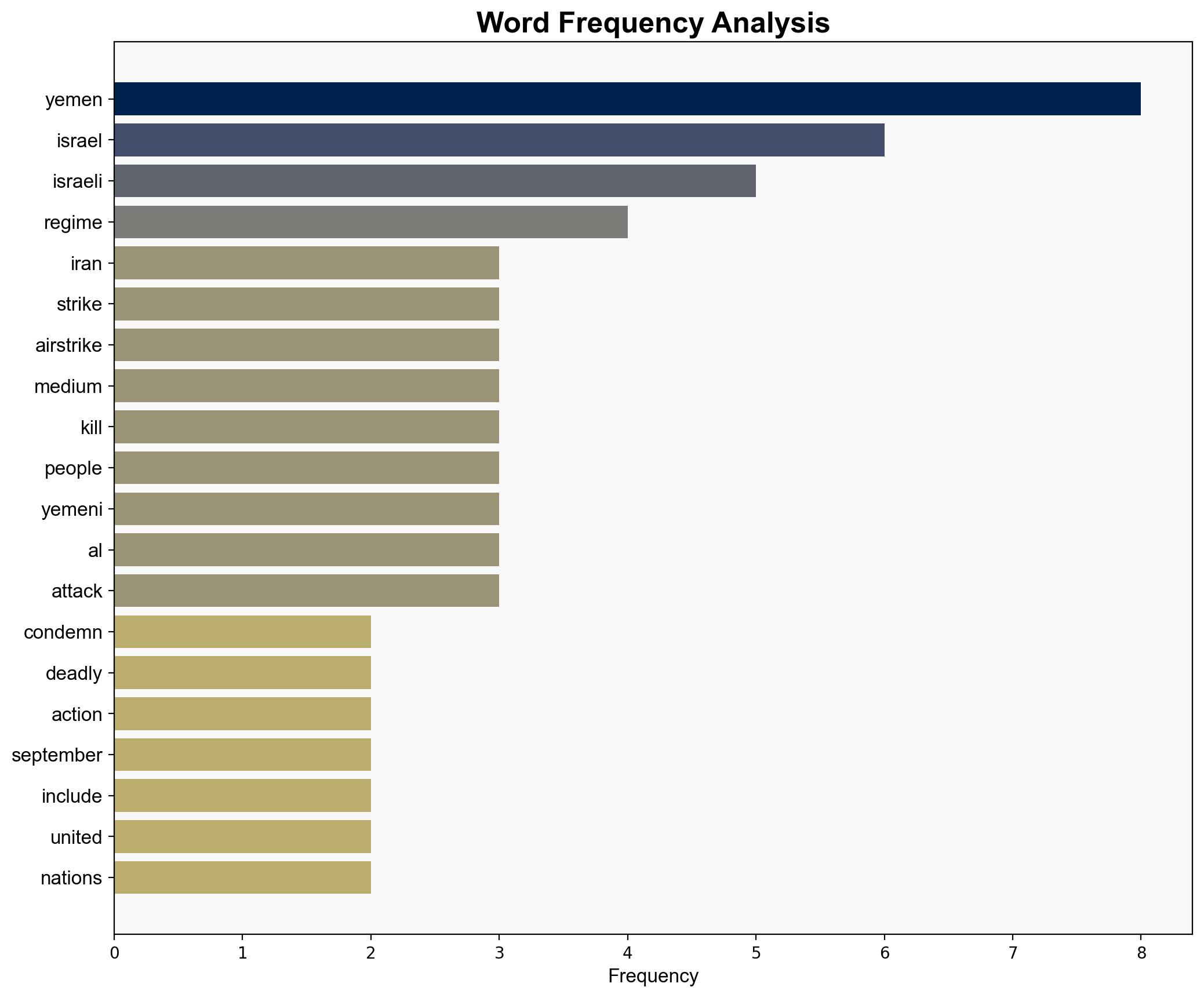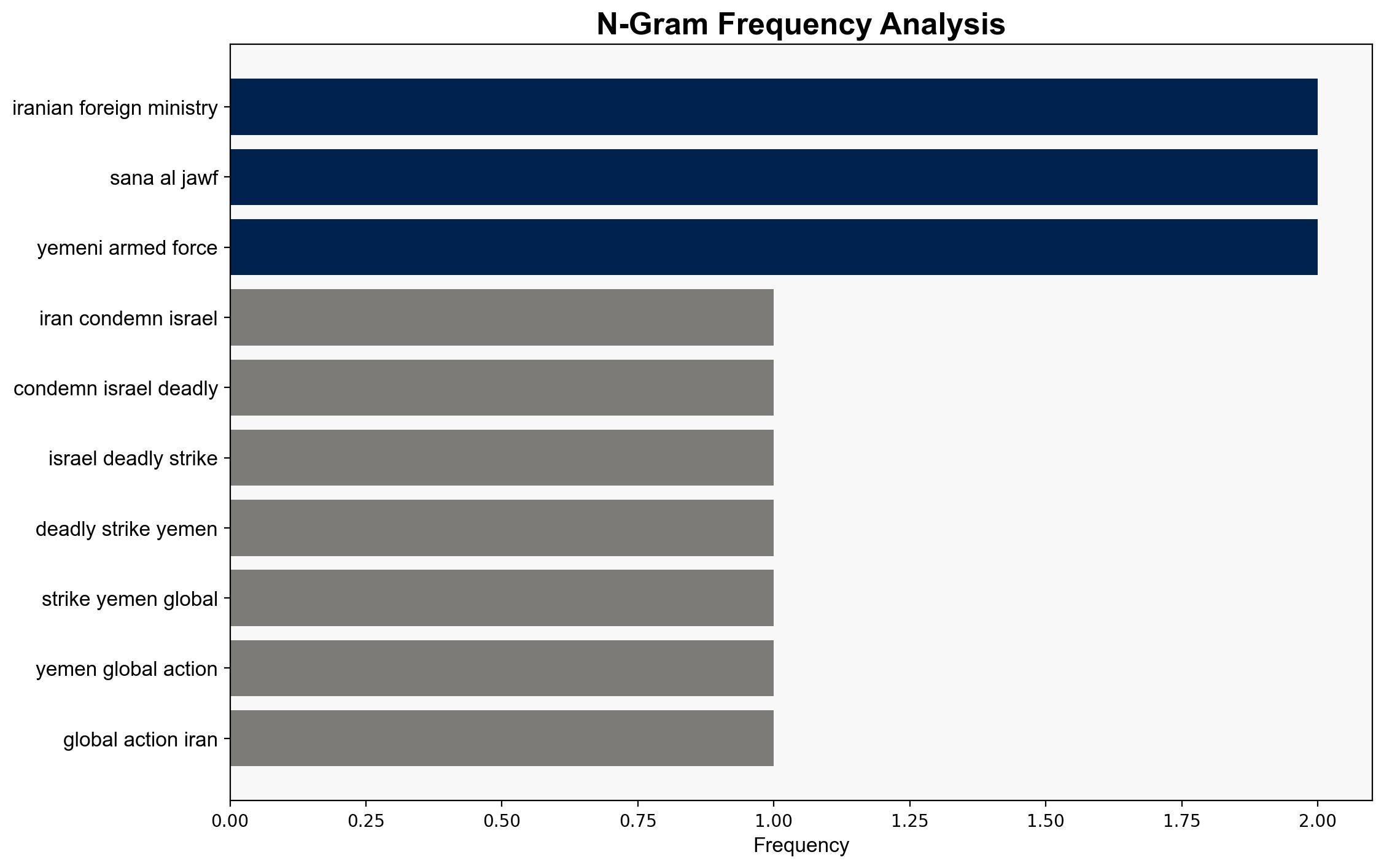Iran condemns Israel’s deadly strikes on Yemen calls for global action – Globalsecurity.org
Published on: 2025-09-12
Intelligence Report: Iran condemns Israel’s deadly strikes on Yemen calls for global action – Globalsecurity.org
1. BLUF (Bottom Line Up Front)
The most supported hypothesis is that Iran’s condemnation of Israel’s actions in Yemen is a strategic move to rally regional and international support against Israel, leveraging the situation to strengthen its geopolitical influence. Confidence level: Moderate. Recommended action: Monitor regional alliances and potential shifts in diplomatic stances, particularly among Islamic nations.
2. Competing Hypotheses
1. **Hypothesis 1**: Iran’s condemnation is primarily a political maneuver aimed at increasing its influence in the region by positioning itself as a defender of oppressed nations, thereby gaining support from other Islamic countries.
2. **Hypothesis 2**: Iran’s response is a genuine reaction to perceived Israeli aggression, driven by ideological commitments to support Yemen and Palestine against Israeli actions.
Using ACH 2.0, Hypothesis 1 is better supported by the pattern of Iran’s historical responses to regional conflicts and its strategic interest in countering Israeli influence. Hypothesis 2 lacks evidence of direct Iranian military or humanitarian support following the condemnation.
3. Key Assumptions and Red Flags
– **Assumptions**: It is assumed that Iran’s statements are primarily strategic rather than purely ideological. There is an assumption of Iran’s capability and willingness to influence regional dynamics effectively.
– **Red Flags**: The lack of independent verification of the events described and potential bias in the reporting source. The possibility of Iran using the situation to distract from its internal issues or other regional activities.
4. Implications and Strategic Risks
– **Geopolitical**: Potential for increased tensions between Israel and Iran, with broader implications for regional stability. Possible realignment of alliances if Iran successfully garners support.
– **Economic**: Disruption in regional trade routes if conflicts escalate, particularly affecting oil markets.
– **Cyber**: Increased risk of cyber operations as a form of asymmetric warfare.
– **Psychological**: Heightened regional animosity and polarization, potentially leading to radicalization.
5. Recommendations and Outlook
- Monitor diplomatic communications and public statements from regional actors to assess shifts in alliances.
- Enhance intelligence collection on potential Iranian support to Yemen beyond rhetoric.
- Scenario Projections:
- Best: Diplomatic resolution with increased dialogue between regional powers.
- Worst: Escalation into broader regional conflict involving multiple state and non-state actors.
- Most Likely: Continued rhetorical exchanges with limited direct confrontation.
6. Key Individuals and Entities
– Iranian Foreign Ministry
– Israeli Military
– Yemeni Armed Forces
7. Thematic Tags
national security threats, regional focus, geopolitical strategy, Middle East conflict





